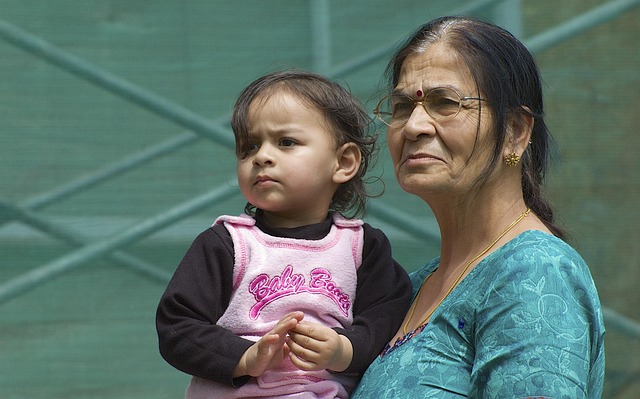Oregon family law safeguards grandparental rights, allowing grandparents to maintain bonds with grandchildren through custody, visitation, or joint guardianship. Grandparents should consult legal experts, understand state guidelines prioritizing child's best interests, and navigate court processes to ensure their involvement is preserved while upholding the child's well-being. Oregon's legal avenues facilitate grandparent-child connections, fostering strong family relationships.
In Oregon, family law matters often center around complex dynamics within grandfamilies. Understanding grandparent’s rights is crucial for ensuring these vital relationships are protected under the state’s laws. This comprehensive guide explores Oregon family law as it pertains to grandparents, covering custody, visitation, legal access, and court involvement. We provide resources and advocacy support for grandparents navigating these intricate matters, recognizing their indispensable role in a child’s life.
- Oregon Family Law: Understanding Grandparent's Rights
- Navigating Custody and Visitation for Grandparents
- Legal Options for Grandparent's Access to Grandchildren
- The Role of Courts in Grandparent-Child Relationships
- Supporting Grandparents: Resources and Advocacy in Oregon
Oregon Family Law: Understanding Grandparent's Rights

In Oregon, family law regarding grandparental rights is a crucial aspect of ensuring stable and loving relationships within families. Grandparents play a vital role in their grandchildren’s lives, and Oregon laws are designed to protect these bonds. According to Oregon Family Law, grandparents have specific legal rights and options when it comes to involvement with their grandchildren, especially if the parents are unable or unwilling to provide care.
These rights include the ability to seek custody, visitation, or joint guardianship of their grandchildren. The law recognizes the importance of grandparental relationships and strives to maintain them whenever possible. It provides a framework for grandparents to navigate family court processes, ensuring their interests and love for their grandchildren are considered in legal decisions.
Navigating Custody and Visitation for Grandparents

Navigating custody and visitation as a grandparent in Oregon involves understanding the state’s family law guidelines, which prioritize the best interests of the child. Grandparents’ rights are recognized and protected under Oregon law, ensuring they can maintain meaningful relationships with their grandchildren. The first step is to consult with an experienced Oregon family law attorney who specializes in grandparental rights. They can guide grandparents through the legal process, helping them file for custody or visitation rights, and advocating for a plan that fosters a healthy bond with the child.
During these legal proceedings, courts consider various factors, including the child’s relationship with each parent and grandparent, stability of the existing household, and any history of abuse or neglect. Grandparents’ involvement in a child’s life can be beneficial, providing additional love, support, and unique perspectives. Effective legal representation ensures that grandparents’ rights are upheld while ensuring the child’s well-being remains at the forefront.
Legal Options for Grandparent's Access to Grandchildren

In Oregon, family law provides several legal options for grandparents seeking access to their grandchildren. Grandparents’ rights in Oregon are primarily governed by case law and statutes that ensure children’s best interests are at the forefront. If a grandparent wants to establish or maintain a relationship with their grandchild, they may need to navigate through various legal processes, including petitioning for visitation or custody.
Oregon family law allows grandparents to file for “visitation rights” or “custody” depending on their specific situation and the child’s age. Visitation rights grant grandparent designated time with the child, while custody refers to legal decision-making authority over the child’s care and upbringing. These legal options empower grandparents to actively participate in their grandchild’s life, fostering meaningful connections and ensuring a strong family support system.
The Role of Courts in Grandparent-Child Relationships

In Oregon family law cases involving grandparent-child relationships, courts play a pivotal role in determining access and custody rights. Grandparents seeking legal support must understand that these judicial decisions are made with the best interests of the child as the primary consideration. The court will evaluate factors such as the quality of the relationship between the grandchild and grandparent, the stability of each household, and any potential impact on the child’s well-being.
Oregon family law recognizes the significant bond and contribution grandparents can offer to a child’s life. Therefore, when crafting custody orders, courts aim to foster meaningful relationships while also ensuring the security and happiness of the minor child. This delicate balance requires thorough legal advocacy to protect the rights and interests of all involved parties in grandparent-child cases.
Supporting Grandparents: Resources and Advocacy in Oregon

In Oregon, supporting grandparents seeking legal assistance in family matters is a significant aspect of the state’s family law system. Resources are available to help navigate complex issues surrounding grandparent rights, custody, and visitation. The Oregon Department of Human Services offers guidance and support for grandparents, ensuring their voices are heard in family court proceedings.
Advocacy groups dedicated to Oregon family law grandparents play a crucial role in providing legal resources and education. These organizations offer workshops, legal clinics, and networking opportunities, empowering grandparents with the knowledge to advocate for themselves and their grandchildren’s best interests. Understanding their rights under Oregon law is essential for grandparents seeking legal support, ensuring fair representation and outcomes in all family-related matters.














